
Serra de São Mamede Natural Park: A Haven of Natural Beauty in Portugal
Serra de São Mamede Natural Park, located in the Alentejo region of Portugal, is a pristine sanctuary for nature lovers. This park is a mosaic of landscapes, from lush forests to rolling hills, and is home to a diverse array of flora and fauna. Visitors can experience the tranquility of untouched nature, making it an ideal spot for hiking, bird-watching, and exploring the great outdoors. One of the highlights of the park is its rich biodiversity. The park hosts numerous species of birds, mammals, and plants, some of which are rare and endemic to the region. Whether you're a seasoned botanist or an amateur naturalist, Serra de São Mamede offers a wealth of opportunities to observe and appreciate the natural world. The park is also steeped in history and culture. Scattered throughout the landscape are ancient ruins, medieval castles, and quaint villages that tell the story of the region's past. The town of Marvão, perched on a hilltop, provides stunning views of the surrounding countryside and is a must-visit for its historical significance and charming architecture. For those seeking outdoor adventure, the park offers a network of trails that cater to all levels of difficulty. Whether you prefer a leisurely stroll or a challenging hike, the trails provide breathtaking views and a chance to immerse yourself in the beauty of the natural environment. Don't forget to bring your camera, as the park is a photographer's paradise with its dramatic landscapes and picturesque scenery.
Local tips in Serra de São Mamede Natural Park
- Wear comfortable hiking shoes and bring plenty of water, especially during the hot summer months.
- Visit the town of Marvão for its historical significance and breathtaking views of the park.
- Carry a pair of binoculars for bird-watching, as the park is home to many rare and interesting species.
- Check the weather forecast before planning your hike, as conditions can change rapidly in the mountains.
- Consider visiting in spring or autumn for milder weather and to see the park's flora in full bloom.
Serra de São Mamede Natural Park: A Haven of Natural Beauty in Portugal
Serra de São Mamede Natural Park, located in the Alentejo region of Portugal, is a pristine sanctuary for nature lovers. This park is a mosaic of landscapes, from lush forests to rolling hills, and is home to a diverse array of flora and fauna. Visitors can experience the tranquility of untouched nature, making it an ideal spot for hiking, bird-watching, and exploring the great outdoors. One of the highlights of the park is its rich biodiversity. The park hosts numerous species of birds, mammals, and plants, some of which are rare and endemic to the region. Whether you're a seasoned botanist or an amateur naturalist, Serra de São Mamede offers a wealth of opportunities to observe and appreciate the natural world. The park is also steeped in history and culture. Scattered throughout the landscape are ancient ruins, medieval castles, and quaint villages that tell the story of the region's past. The town of Marvão, perched on a hilltop, provides stunning views of the surrounding countryside and is a must-visit for its historical significance and charming architecture. For those seeking outdoor adventure, the park offers a network of trails that cater to all levels of difficulty. Whether you prefer a leisurely stroll or a challenging hike, the trails provide breathtaking views and a chance to immerse yourself in the beauty of the natural environment. Don't forget to bring your camera, as the park is a photographer's paradise with its dramatic landscapes and picturesque scenery.
When is the best time to go to Serra de São Mamede Natural Park?
Unmissable attractions to see
Serra da Estrela Nature Park
Explore the breathtaking beauty and rich biodiversity of Serra da Estrela Nature Park, Portugal's largest national park, ideal for outdoor adventures.
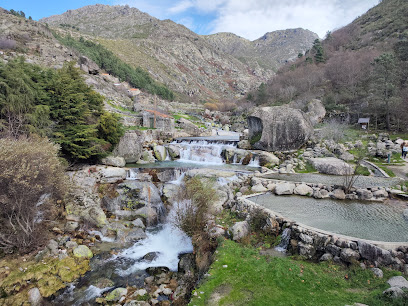
Mira de Aire Cave
Discover the breathtaking beauty of Mira de Aire Cave, a hidden gem in Portugal featuring stunning rock formations and a fascinating underground world.
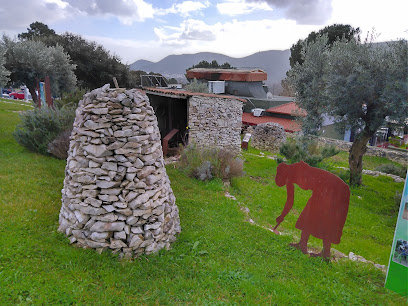
Guadiana Valley Natural Park
Explore the captivating beauty of Guadiana Valley Natural Park, a serene nature preserve in Portugal perfect for outdoor adventures and wildlife observation.
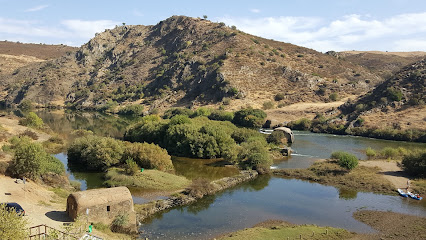
Sensory Ecopark of Pia do Urso
Explore the serene beauty of Sensory Ecopark of Pia do Urso, where nature and sensory experiences unite for unforgettable adventures.
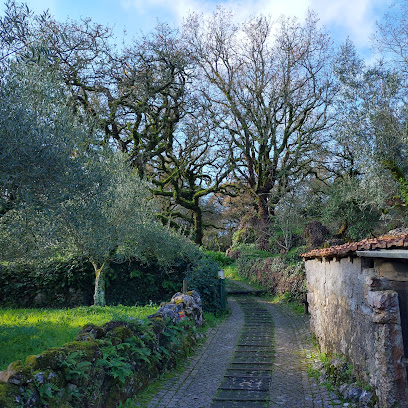
Portas do Ródão Natural Monument
Discover the breathtaking beauty of Portas do Ródão Natural Monument, a serene national park in Portugal, perfect for outdoor adventures and nature lovers.
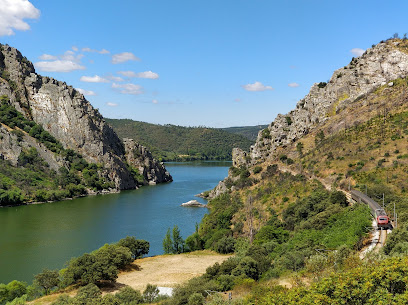
Castelo de Porto de Mós
Explore the stunning Castelo de Porto de Mós, a magnificent medieval landmark offering breathtaking views and a rich historical experience in Portugal.
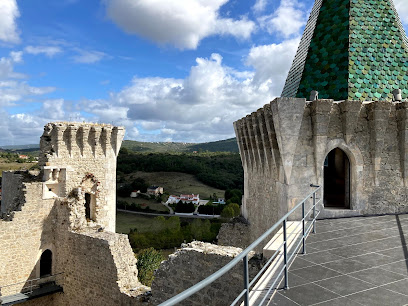
Grutas de Santo António
Discover the breathtaking Grutas de Santo António, a stunning cave system in Alvados, showcasing nature's beauty through incredible geological formations.
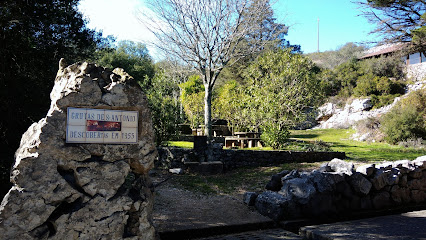
Monumento Natural das Pegadas de Dinossáurios - Ourém / Torres Novas
Discover the ancient dinosaur footprints at Monumento Natural das Pegadas de Dinossáurios in Ourém, a captivating blend of history and nature.
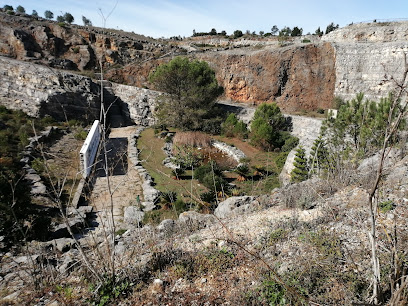
Trilho da Barca d'Amieira - Passadiços de Nisa
Explore the scenic beauty of Trilho da Barca d'Amieira, a serene hiking trail in Amieira do Tejo, perfect for outdoor adventures and nature lovers.
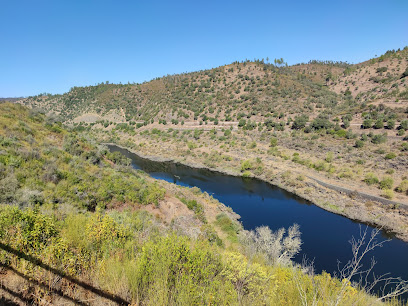
Judiaria de Castelo de Vide
Discover the rich Jewish heritage of Castelo de Vide in Judiaria, a charming neighborhood filled with history, beauty, and cultural significance.
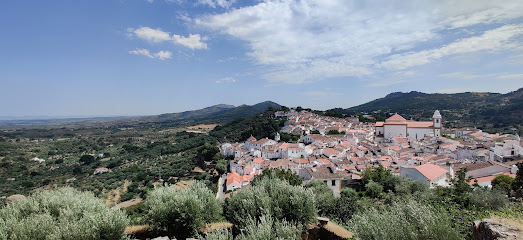
Sinagoga de Castelo de Vide
Explore the historic Sinagoga de Castelo de Vide, a captivating museum showcasing the rich Jewish heritage of Portugal in a charming setting.
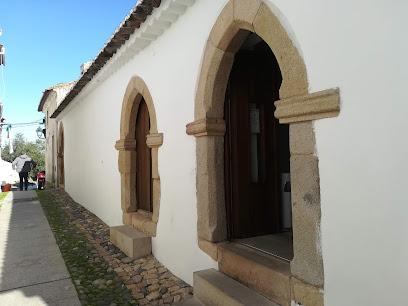
Passadiços do Gameiro
Explore the scenic wooden walkways and rich biodiversity of Passadiços do Gameiro, a serene hiking paradise in the heart of Portugal.
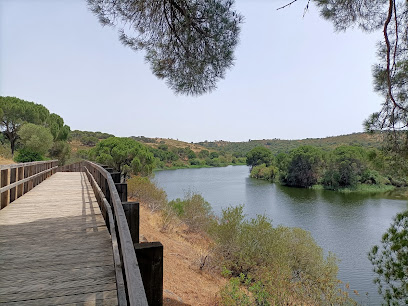
Estrada Romana do Alqueidão da Serra
Explore the Estrada Romana do Alqueidão da Serra, a magnificent historical landmark showcasing ancient Roman engineering and breathtaking natural beauty.
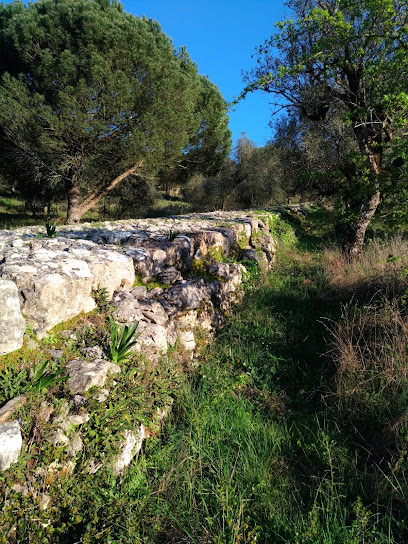
Alto da Serra de São Mamede
Experience the breathtaking beauty and rich biodiversity at Alto da Serra de São Mamede, Portugal's highest peak south of the River Tagus.
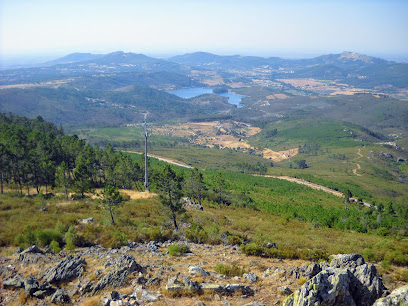
Baloiço da Torre de Barrozinha
Explore stunning views and invigorating trails at Baloiço da Torre de Barrozinha, a hiking paradise in Reguengo do Fetal, Portugal.
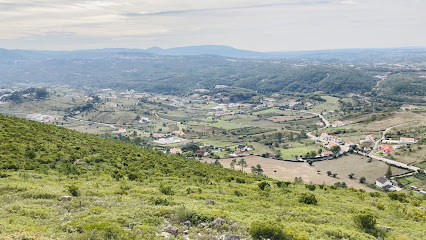
Essential places to dine
Regata
Discover Regata in Alpalhão: A culinary haven offering authentic Portuguese dishes in a warm and welcoming atmosphere.
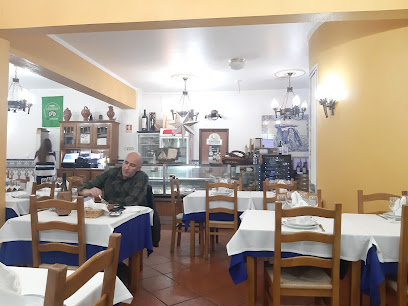
Restaurante Varanda do Alentejo
Experience authentic Alentejan cuisine with breathtaking views at Restaurante Varanda do Alentejo in Marvão.
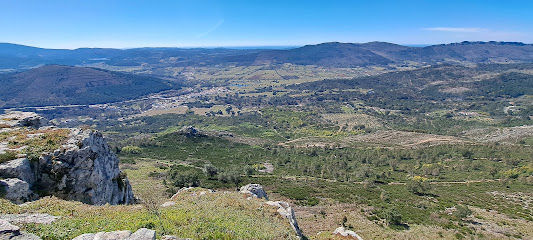
Sal e Alho
Experience authentic Portuguese flavors at Sal e Alho in Portalegre – a dining destination that celebrates local cuisine with every dish.
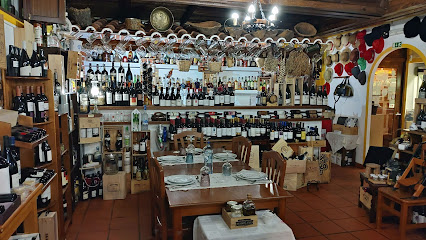
Cavalinho
Discover authentic Alentejo cuisine at Cavalinho in Portalegre - where tradition meets taste.
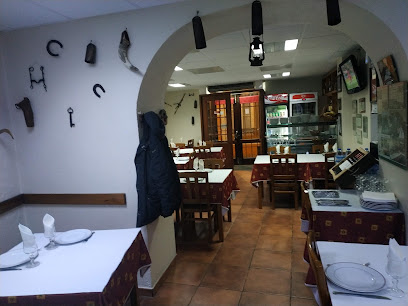
Tombalobos
Discover Tombalobos: A Culinary Haven in Portalegre Offering Authentic Alentejo Cuisine and Exceptional Service.
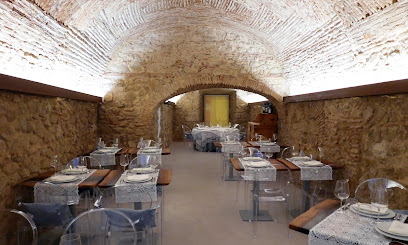
Carlos Caeiro
Discover authentic Portuguese cuisine at Carlos Caeiro - where flavor meets affordability in an inviting atmosphere.
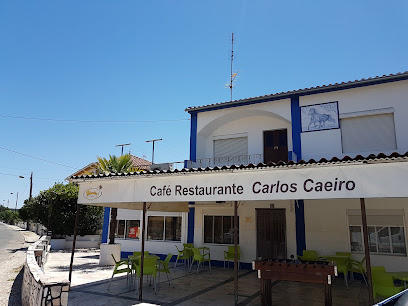
Restaurante Duarte
Experience authentic Portuguese cuisine at Restaurante Duarte in São Miguel do Rio Torto - a budget-friendly gem for food lovers.
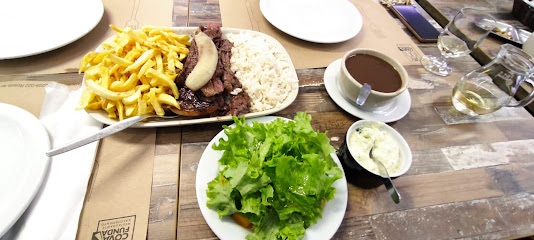
Restaurante O Malagueta
Experience authentic Portuguese cuisine at Restaurante O Malagueta in Portalegre – where tradition meets flavor.
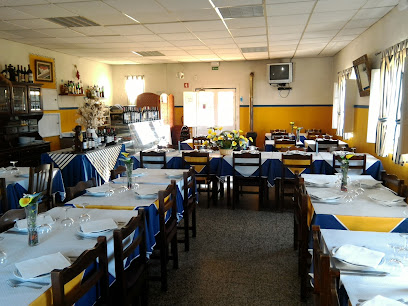
Taberna Facha
Experience authentic Portuguese cuisine at Taberna Facha in Portalegre - a charming tavern with delicious dishes and warm hospitality.
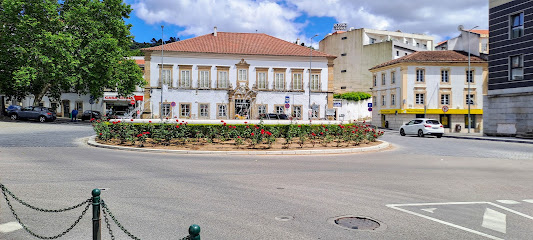
Cantinho do pescador
Savor authentic Portuguese seafood dishes in Ribeira de Nisa's charming Cantinho do Pescador – where every meal is a celebration of local flavors.
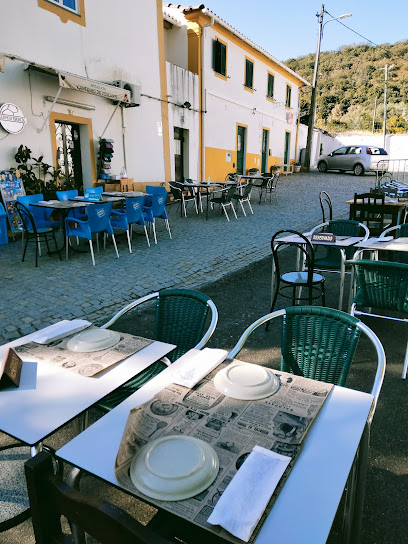
Café Restaurante Realinho - Francisco Realinho & Santos, Lda.
Experience authentic Portuguese cuisine at Café Restaurante Realinho – where every dish tells a story.
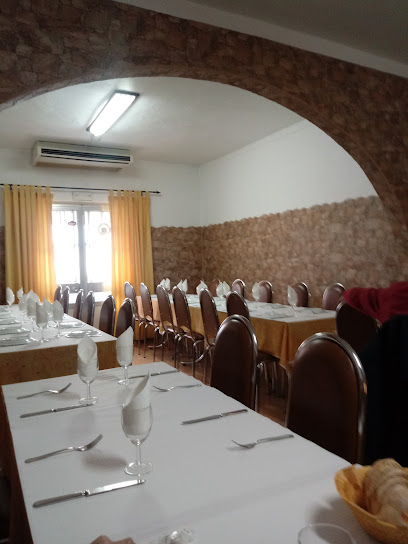
Restaurante Aida
Experience authentic Portuguese cuisine at Restaurante Aida with exquisite grilled dishes in a welcoming atmosphere.
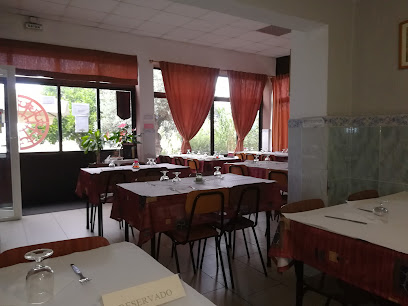
Snack Bar Restaurante Boavista
Discover authentic Portuguese cuisine at Snack Bar Restaurante Boavista in Castelo de Vide—where local flavors meet warm hospitality.
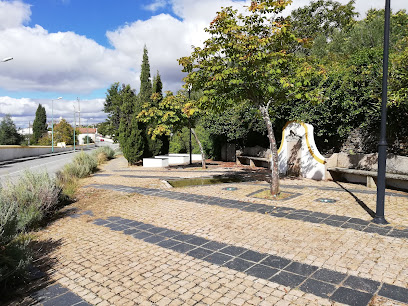
A Adega
Discover authentic Portuguese flavors at A Adega, where regional dishes and fine wines create an unforgettable dining experience.
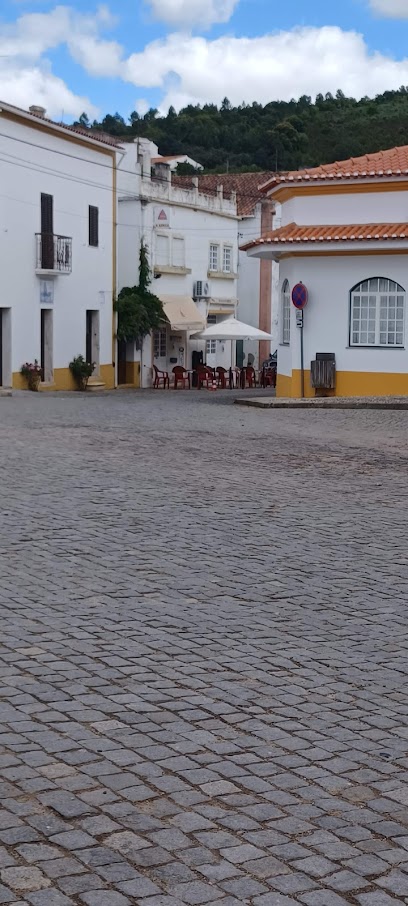
Dom Jardim
Discover Dom Jardim: A delightful brewpub in Tramagal offering local flavors and cozy vibes perfect for relaxation.
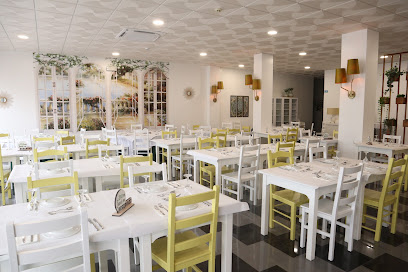
Markets, malls and hidden boutiques
Serra da Estrela Nature Park
Explore the breathtaking landscapes and rich biodiversity of Serra da Estrela Nature Park, Portugal's largest national park and a haven for nature lovers.
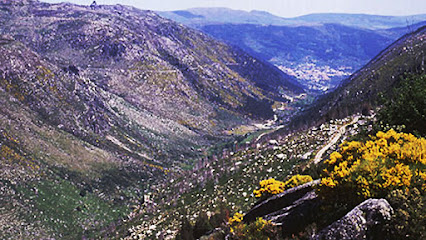
Mira de Aire Cave
Discover the stunning Mira de Aire Cave, Portugal's largest cave system, featuring breathtaking formations and an enchanting underground world.
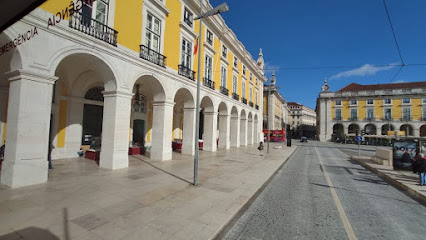
Castle of Marvão
Discover the enchanting Castle of Marvão, a historic fortress boasting breathtaking views and rich Portuguese heritage, perfect for every traveler's adventure.
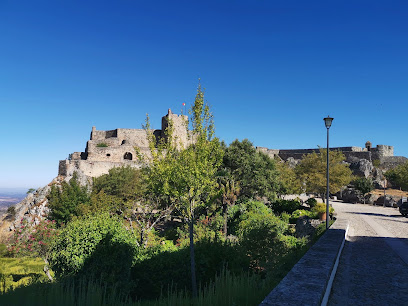
Parque Natural da Serra de São Mamede
Explore Parque Natural da Serra de São Mamede: A National Park Rich in Biodiversity and Stunning Landscapes in Portugal.
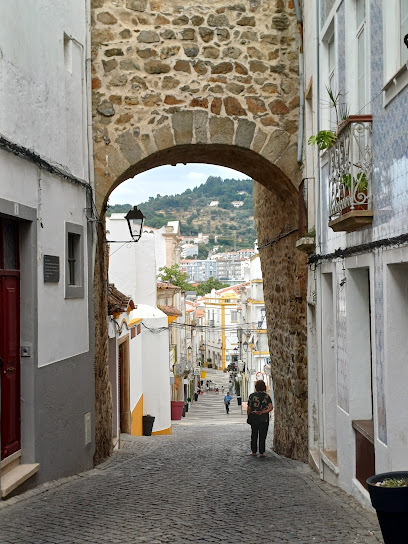
Parque Natural do Douro Internacional
Explore the breathtaking beauty of Parque Natural do Douro Internacional, a captivating blend of rich biodiversity and stunning landscapes in Portugal.
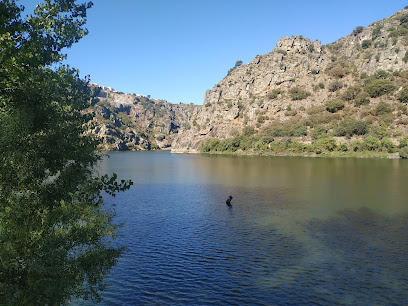
Sensory Ecopark of Pia do Urso
Discover the Sensory Ecopark of Pia do Urso, a serene retreat in Portugal filled with lush landscapes and immersive nature experiences for all ages.
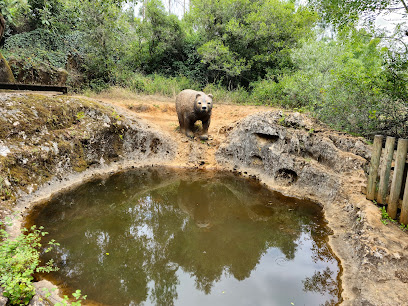
Castle of Castelo de Vide
Experience the medieval charm of Castelo de Vide, where history meets breathtaking views in this stunning Portuguese castle.
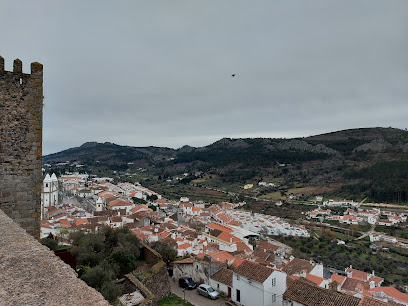
Lagoas de Santo André e da Sancha Nature Reserve
Explore the unspoiled beauty of Lagoas de Santo André e da Sancha Nature Reserve, a biodiversity hotspot in Portugal perfect for nature lovers and birdwatchers.
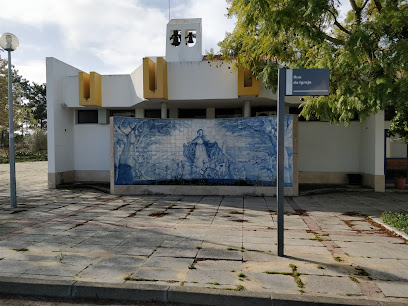
EmbaiXada
Discover EmbaiXada in Lisbon: A vibrant shopping mall celebrating local artisans, unique boutiques, and exquisite dining experiences.
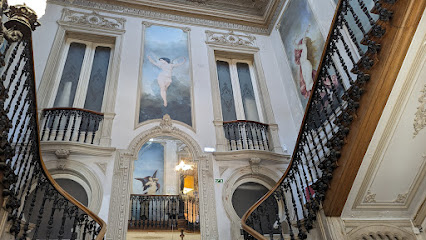
Monumento Natural das Pegadas de Dinossáurios - Ourém / Torres Novas
Discover the ancient footprints of dinosaurs at the Monumento Natural das Pegadas de Dinossáurios in Ourém, a captivating blend of natural history and breathtaking scenery.
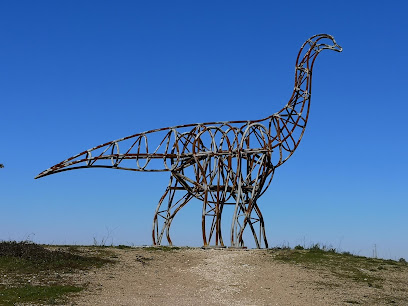
Passadiços do Gameiro
Explore the breathtaking wooden walkways and rich biodiversity of Passadiços do Gameiro in Cabeção, Portugal, a paradise for nature lovers and hikers.
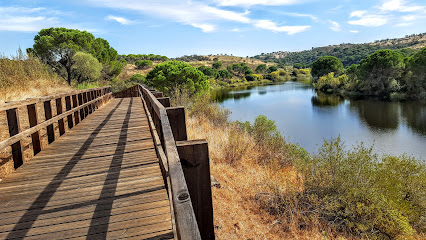
Estalagem da Liberdade
Discover the charm of Portalegre at Estalagem da Liberdade, your tranquil retreat for a memorable stay in this historic city.
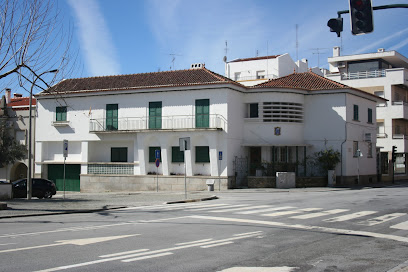
Cabeças do Reguengo - Turismo Rural
Discover the serenity of Cabeças do Reguengo, a charming farmstay in upper Alentejo, blending rustic allure with modern comforts and exquisite wines.

Pele e Osso
Explore Pele e Osso in Ponta Delgada for unique handcrafted goods that embody the spirit of the Azores, perfect for souvenirs and gifts.
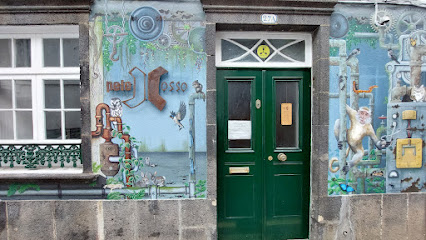
Azores Lovers - Lifestyle, Design, Gifts, Souvenirs & Love
Discover the essence of the Azores at Azores Lovers, where unique gifts and local artistry meet in a charming shopping experience in Ponta Delgada.
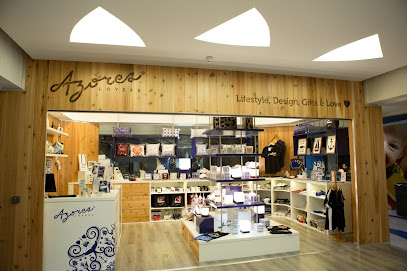
Essential bars & hidden hideouts
Parque Natural da Serra de São Mamede
Explore the breathtaking landscapes and rich biodiversity of Parque Natural da Serra de São Mamede, a true gem in Portugal's natural heritage.
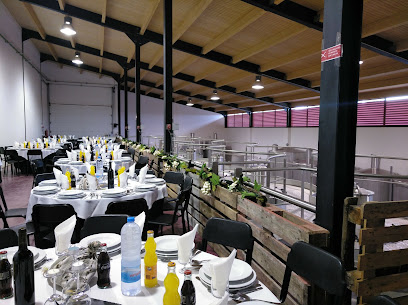
Delirium Café
Experience the vibrant atmosphere of Delirium Café, where beer lovers gather to enjoy an unparalleled selection of brews in the heart of Lisbon.
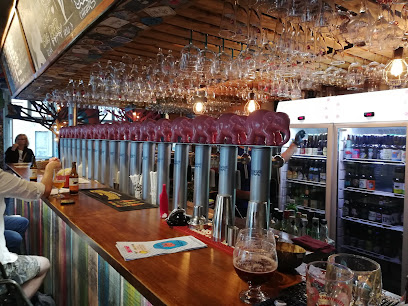
Regata
Discover the flavors of Portugal at Regata, a restaurant in Alpalhão known for its authentic dishes and warm hospitality.
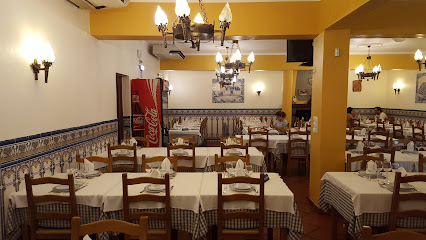
Trobadores - Taberna Medieval
Discover Trobadores - Taberna Medieval, where Lisbon's vibrant gastronomy meets captivating medieval entertainment in a unique setting.
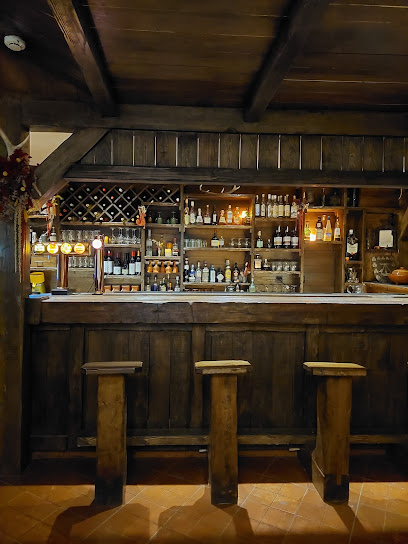
Casa Plátano restaurante
Experience the authentic taste of Portugal at Casa Plátano, where traditional cuisine meets a welcoming atmosphere in the heart of Fátima.
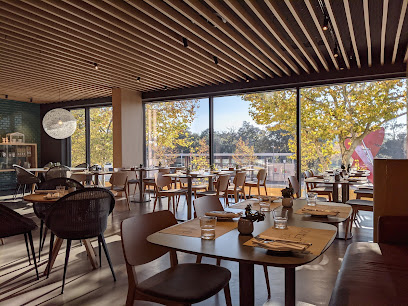
Restaurante Varanda do Alentejo
Discover the culinary treasures of Alentejo at Restaurante Varanda do Alentejo, where traditional flavors meet stunning views in Marvão.
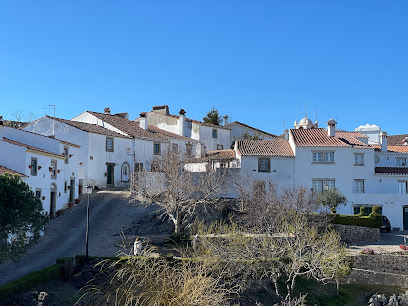
Sunset Steve's Bar (Piscinas Naturais)
Experience the essence of São Miguel at Sunset Steve's Bar, where delightful cuisine meets stunning ocean views.
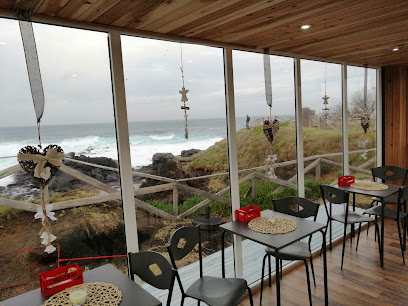
Delman Bar & Lounge
Experience the culinary delights and vibrant nightlife at Delman Bar & Lounge, Praia da Vitória's premier gastropub and cocktail bar.
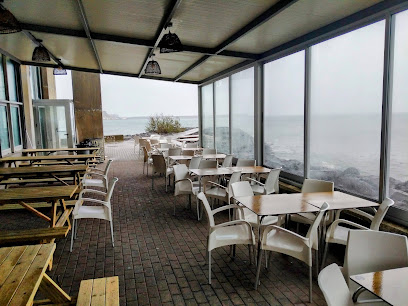
Snack Bar Jonita
Experience authentic Portuguese cuisine at Snack Bar Jonita in São Mamede de Infesta, where flavor meets tradition in a cozy setting.
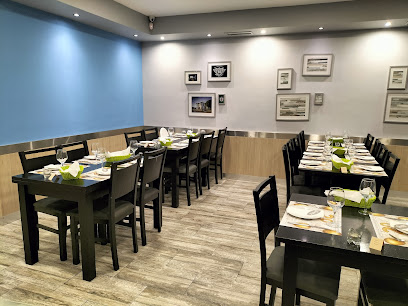
O Castelo - Café Lounge
Discover the cozy charm of O Castelo - Café Lounge in Marvão, where exquisite espresso meets breathtaking views.
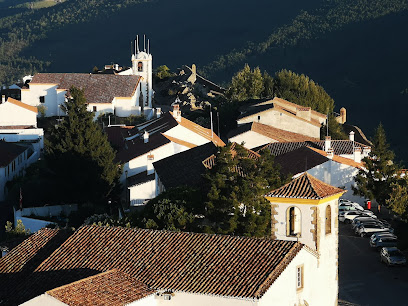
Bbeach Oeiras Club
Discover the culinary charm of Bbeach Oeiras Club, where exquisite flavors meet breathtaking ocean views on the beautiful Portuguese coastline.
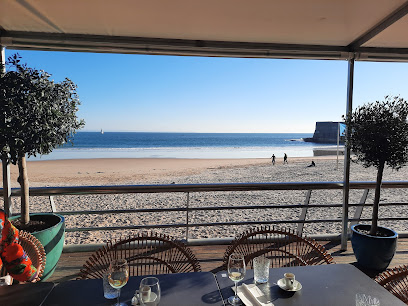
The Gin Library + Outdoor Terrace
Immerse yourself in the exquisite world of gin at The Gin Library + Outdoor Terrace, where nature and flavor harmoniously blend.
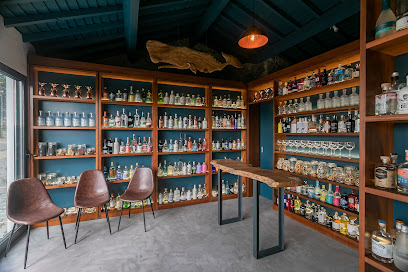
Nippon Sushi Bar
Savor authentic Japanese flavors at Nippon Sushi Bar in São Mamede de Infesta, a culinary journey filled with fresh sushi and traditional dishes.
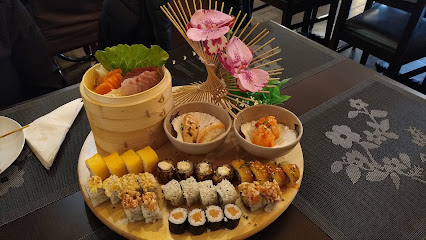
Café Restaurante Tapada do Poêjo
Experience the authentic flavors of Portugal at Café Restaurante Tapada do Poêjo, a charming culinary haven in Marvão.
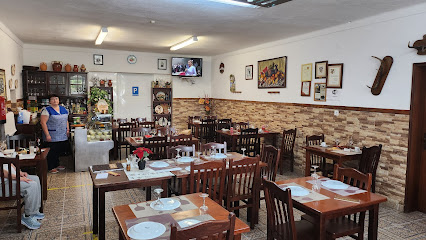
Local Phrases about Serra de São Mamede Natural Park
-
- HelloOlá
[oh-LAH] - GoodbyeAdeus
[ah-DAY-oosh] - YesSim
[seem] - NoNão
[now] - Please/You're welcomePor favor
[poor fah-VOHR] - Thank youObrigado
[oh-bree-GAH-doo] - Excuse me/SorryDesculpe
[dess-KOOL-peh] - How are you?Como está?
[KOH-moh es-TAH] - Fine. And you?Bem. E você?
[bayn. eh vohs-SEH] - Do you speak English?Fala inglês?
[FAH-lah een-GLAYS] - I don't understandNão entendo
[now en-TEN-doo]
- HelloOlá
-
- I'd like to see the menu, pleaseGostaria de ver o menu, por favor
[gohs-tah-REE-ah deh vehr oo MEH-noo, poor fah-VOHR] - I don't eat meatNão como carne
[now KOH-moo KAHR-neh] - Cheers!Saúde!
[sow-OO-deh] - I would like to pay, pleaseGostaria de pagar, por favor
[gohs-tah-REE-ah deh pah-GAHR, poor fah-VOHR]
- I'd like to see the menu, pleaseGostaria de ver o menu, por favor
-
- Help!Socorro!
[so-KOH-roh] - Go away!Vai embora!
[vah-ee ehm-BOH-rah] - Call the Police!Chame a polícia!
[SHAH-meh ah poh-LEE-see-ah] - Call a doctor!Chame um médico!
[SHAH-meh oong MEH-dee-koo] - I'm lostEstou perdido
[ehs-TOH pehr-DEE-doo] - I'm illEstou doente
[ehs-TOH doo-EHN-teh]
- Help!Socorro!
-
- I'd like to buy...Gostaria de comprar...
[gohs-tah-REE-ah deh kohm-PRAR] - I'm just lookingEstou só a ver
[ehs-TOH soh ah vehr] - How much is it?Quanto custa?
[KWAHN-too KOOSH-tah] - That's too expensiveIsso é muito caro
[EE-so eh MWEEN-too KAHR-oo] - Can you lower the price?Pode baixar o preço?
[POH-deh bah-SHAR oo PREH-soo]
- I'd like to buy...Gostaria de comprar...
-
- What time is it?Que horas são?
[keh OH-rahz sow] - It's one o'clockÉ uma hora
[eh OO-mah OH-rah] - Half past (10)Dez e meia
[dehsh ee MAY-ah] - MorningManhã
[mahn-YAH] - AfternoonTarde
[TAHR-deh] - EveningNoite
[NOY-teh] - YesterdayOntem
[ohn-TEHM] - TodayHoje
[OH-zheh] - TomorrowAmanhã
[ah-mahn-YAH] - 1Um
[oom] - 2Dois
[doh-ees] - 3Três
[trehsh] - 4Quatro
[KWAH-troo] - 5Cinco
[SEEN-koo] - 6Seis
[saysh] - 7Sete
[SEH-teh] - 8Oito
[OY-too] - 9Nove
[NOH-veh] - 10Dez
[dehsh]
- What time is it?Que horas são?
-
- Where's a/the...?Onde fica o/a...?
[ON-deh FEE-kah oo/ah] - What's the address?Qual é o endereço?
[kahl eh oo ehn-deh-REH-soo] - Can you show me (on the map)?Pode mostrar-me (no mapa)?
[POH-deh moh-SHAHR-meh (noo MAH-pah)] - When's the next (bus)?Quando é o próximo (autocarro)?
[KWAN-doo eh oo PROH-ksee-moh (ow-toh-KAHR-roo)] - A ticket (to ....)Um bilhete (para ...)
[oom bee-YEH-teh (pah-rah)]
- Where's a/the...?Onde fica o/a...?
History of Serra de São Mamede Natural Park
-
Serra de São Mamede is rich in prehistoric sites, with evidence of human occupation dating back thousands of years. The park is home to numerous megalithic monuments, including dolmens and menhirs, which are scattered across the landscape. These ancient stone structures are believed to have been used for ceremonial or burial purposes by the early inhabitants of the region.
-
During the Roman era, Serra de São Mamede was an important area due to its strategic location and natural resources. The Romans built roads, bridges, and settlements in the region, leaving behind a legacy that can still be seen today. Archaeological sites such as the Roman ruins in Ammaia, near Marvão, provide a glimpse into the life and infrastructure of the Roman period.
-
The medieval period saw the construction of several fortresses and castles within Serra de São Mamede. These structures were built to defend the territory from invaders and to establish control over the region. Notable examples include the Castle of Marvão, perched on a rocky outcrop with stunning views of the surrounding landscape, and the Castle of Portalegre, which played a significant role in the region's defense.
-
Serra de São Mamede is also known for its rich religious heritage. Several monasteries, churches, and chapels are scattered throughout the park, reflecting the region's strong Christian traditions. The Monastery of Flor da Rosa, founded in the 14th century, is a remarkable example of Gothic and Manueline architecture and served as a significant religious and cultural center in the region.
-
During the Portuguese Restoration War (1640-1668), Serra de São Mamede played a strategic role due to its proximity to the Spanish border. The region saw numerous military skirmishes and the fortifications were reinforced to protect against Spanish incursions. The war ultimately led to the restoration of Portuguese independence from Spain, marking a significant chapter in the nation's history.
-
In the 20th century, efforts to conserve and protect the unique biodiversity and cultural heritage of Serra de São Mamede led to the establishment of the natural park in 1989. The park covers an area of approximately 56,000 hectares and is home to a diverse range of flora and fauna. Modern conservation initiatives focus on preserving the natural environment while promoting sustainable tourism and education.
Serra de São Mamede Natural Park Essentials
-
Serra de São Mamede Natural Park is located in the Alentejo region of Portugal. The nearest major airport is Lisbon Portela Airport, approximately 200 kilometers away. From Lisbon, you can rent a car and drive to the park, which takes about 2.5 hours via the A6 and IP2 highways. Alternatively, you can take a train or bus from Lisbon to Portalegre, the closest city to the park, and then use local transportation or a taxi to reach the park.
-
Within Serra de São Mamede Natural Park, renting a car is the most convenient way to explore the area, especially the more remote locations. Local buses connect some of the towns within the park, but they may not be very frequent. Taxis are available in Portalegre and other major towns, but it's advisable to book in advance for trips to more isolated areas. Cycling is also a popular way to explore the park, with several designated cycling routes.
-
The official currency in Portugal is the Euro (EUR). Credit cards are widely accepted in hotels, restaurants, and shops in the larger towns around the park, such as Portalegre and Marvão. However, it is recommended to carry some cash for purchases in smaller establishments and rural areas. ATMs are available in the main towns, but it's wise to withdraw sufficient cash before heading into the more remote parts of the park.
-
Serra de São Mamede Natural Park is generally a very safe destination for tourists. However, it is always advisable to take standard precautions, such as not leaving valuables unattended and being aware of your surroundings. There are no specific high-crime areas targeting tourists, but it is always best to stay vigilant, especially in crowded places like markets and during festivals.
-
In case of emergency, dial 112 for immediate assistance. This number will connect you to police, medical, and fire services. The nearest hospitals are located in Portalegre and Elvas, both of which are within a reasonable distance from the park. Pharmacies are available in larger towns, and it is advisable to carry a basic first-aid kit if you plan on hiking or engaging in other outdoor activities.
-
Fashion: Do dress in comfortable, weather-appropriate clothing, especially if you plan on hiking. Avoid overly revealing clothing in smaller, conservative towns. Religion: Do respect local customs, especially when visiting churches or religious sites. Public Transport: Do be courteous and give up your seat to elderly passengers. Greetings: Do greet people with a handshake or a simple 'Olá'. Eating & Drinking: Do try local delicacies and wines, and be gracious if offered food by locals. Don't rush through meals; savor the leisurely pace of dining in Alentejo.
-
To experience Serra de São Mamede Natural Park like a local, visit the weekly markets in Portalegre and Marvão to buy fresh produce and traditional goods. Engage with locals; they are often friendly and willing to share stories about the area's history and culture. Don't miss the medieval castles in Marvão and Castelo de Vide, and be sure to try the local cheeses and wines. For a unique experience, explore the park's many hiking trails, which offer stunning views and a chance to see local wildlife.
Nearby Cities to Serra de São Mamede Natural Park
-
Things To Do in Viseu
-
Things To Do in Évora
-
Things To Do in Tomar
-
Things To Do in Coimbra
-
Things To Do in Caldas da Rainha
-
Things To Do in Setúbal
-
Things To Do in Lisbon
-
Things To Do in Sintra
-
Things To Do in Aveiro
-
Things To Do in Cascais
-
Things To Do in Lamego
-
Things To Do in Vila Real
-
Things To Do in Huelva
-
Things To Do in Porto
-
Things To Do in Salamanca










